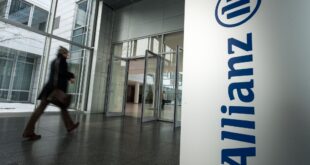PSA Peugeot Citroën, Wednesday in Tunis, the Tunisian capital, unveiled the new Peugeot Pick-up van at a media event attended by motoring journalists across Africa and top officials of the French carmaker. The event featured a test-drive of the much-anticipated pickup, which is expected to compete in the lucrative light commercial vehicle (lcv) segment of the African market.
Though details of the arrival of the new Peugeot Pick-up in Nigeria and other sub-Saharan African markets are sketchy, feelers are pointing to the preparedness of Peugeot Automobiles Nigeria (PAN), the Kaduna-based assemblers of the Peugeot vehicles in Nigeria, for the arrival of the new pick-up in the country.
The choice of Tunisia for the launch of the new Peugeot Pick-up is part of the strategic push of PSA into the African market and another evidence of French carmakers’ aggressive move to consolidate their presence in North Africa.
PSA Group is already building an assembly plant in Tunisia on collaboration with a local partner, Stafim. The plant is expected to produce 1,200 units of Peugeot Pick-up annually and is due to be ready by mid-2018.
PSA is also planning to open a plant in Morocco in 2019 to build Peugeot and Citroen cars, with plans for a production facility in Algeria.
All these are part of the ‘Push to Pass’ plan of PSA CEO Carlos Tavares, announced in April 2016, with the aim of selling no fewer than 700,000 cars in Africa and the Middle East by 2021.
Aside Tunisia, the French auto giant is well-established in Morocco, where progress is currently being made on the construction of an assembly plant in Kenitra. The PSA Peugeot Citroen plant in Morocco, which is scheduled to be completed in 2019, is expected to create about 3,500 direct jobs and 20,000 indirect jobs.
Tavares said the new Moroccan plant will produce 90,000 vehicles in its first year, with a target to hit 200,000 units annually in subsequent years.
PSA is the second French carmaker to launch fully into Morocco after Renault-Nissan established a massive production facility in Tangier on 2012. The Renault-Nissan plant in Tangier assembles the Renault Dacia models which are exported to over 73 destinations and is currently the largest automotive production facility in Africa.
The plant recently rolled the one millionth vehicle, a five-seat, Azurite Blue Dacia Lodgy, powered by a diesel engine, off the plant. The car, according to Renault, was sold to a customer in Turkey.
The feat was achieved in just after five years of the plant’s inauguration in 2012 and the design of this efficient and eco-friendly plant, which is unrivalled in the automobile industry, is based on two pillars: zero CO2 emissions and zero industrial effluent discharges.
In all, 474,840 Sanderos, 320,078 Dokkers and 193,181 Lodgys have been manufactured in Tangier since the plant’s inauguration in 2012. In addition to covering the Moroccan market, the models built at the factory are exported to more than 73 destinations.
Recall that the Tangier plant’s first production line was inaugurated in February 2012, in the presence of His Majesty, the King Mohammed VI and Carlos Ghosn, CEO, Groupe Renault, and the launch of a second line in 2013, marked a turning point in Morocco’s automotive sector. Indeed, it was the birth of the biggest car manufacturing plant south of the Mediterranean.
Currently, the plant operates in three eight-hour shifts per day, six days a week, with an annual production capacity of 340,000 vehicles. The Renault-Nissan Tangier plant, a main driver of the Moroccan economy, supports Dacia brand growth by exporting the majority of its production. Half of all Dacias are produced in Morocco at either the Tangier plant or at the SOMACA facility in Casablanca.
Groupe Renault has been operating in Morocco since 1928 where it is the undisputed leader in the national market with its two brands, Dacia and Renault. Four vehicles out of 10 sold in Morocco are sold by the Groupe Renault. The Renault plant in Casablanca (SOMACA) has been producing Renault models since 1966, and Dacia models since 2005.
 ..:: AUTO REPORT AFRICA ::..
..:: AUTO REPORT AFRICA ::..




